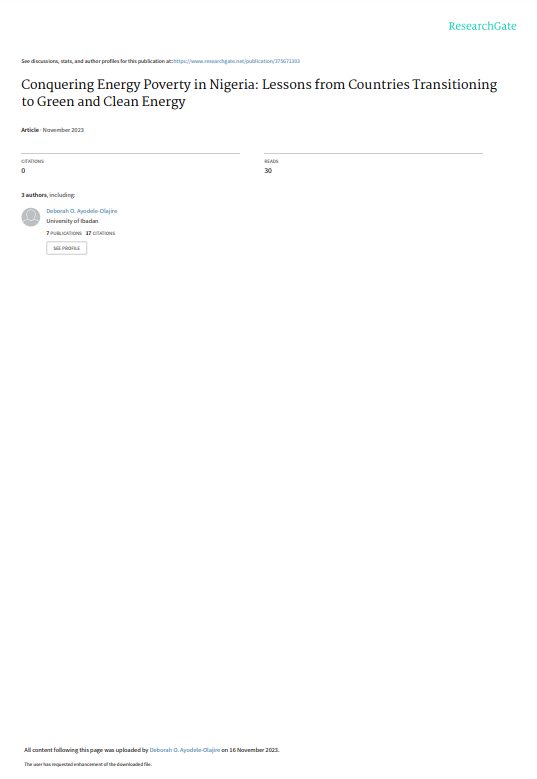Publication date: November 2023
Authors: Deborah Ayodele-Olajire, Opeyemi Gbadegesin & Adeniyi Gbadegesin
Description: Overcoming energy poverty is a crucial measure in achieving sustainable development and enhancing the living conditions of millions of people. Despite having ample energy sources such as solar, wind, biomass, crude oil, natural gas, and coal, Nigeria has about 80 million individuals suffering from energy poverty. This situation is exacerbated by the global energy crisis, with a multiple vulnerability situation due to climate change. Therefore, Nigeria must shift to green (renewable) and clean energy sources. This paper adopts a doctrinal and comparative research approach to explore the lessons Nigeria can learn from other developing countries and a former fossil-dependent nation that are transitioning to green and clean energy. The countries provide valuable insights into crafting efficient policy frameworks, creating renewable energy infrastructure, and involving stakeholders in the transition process. The paper stresses that Nigeria's comprehensive and inclusive energy strategy should prioritize providing all citizens access to economical and clean energy, promoting sustainable economic growth and environmental preservation. Ultimately, the paper concludes that through this approach, Nigeria can unlock its potential as a leader in Africa's energy sector and quicken its transition to a prosperous and green future.






















